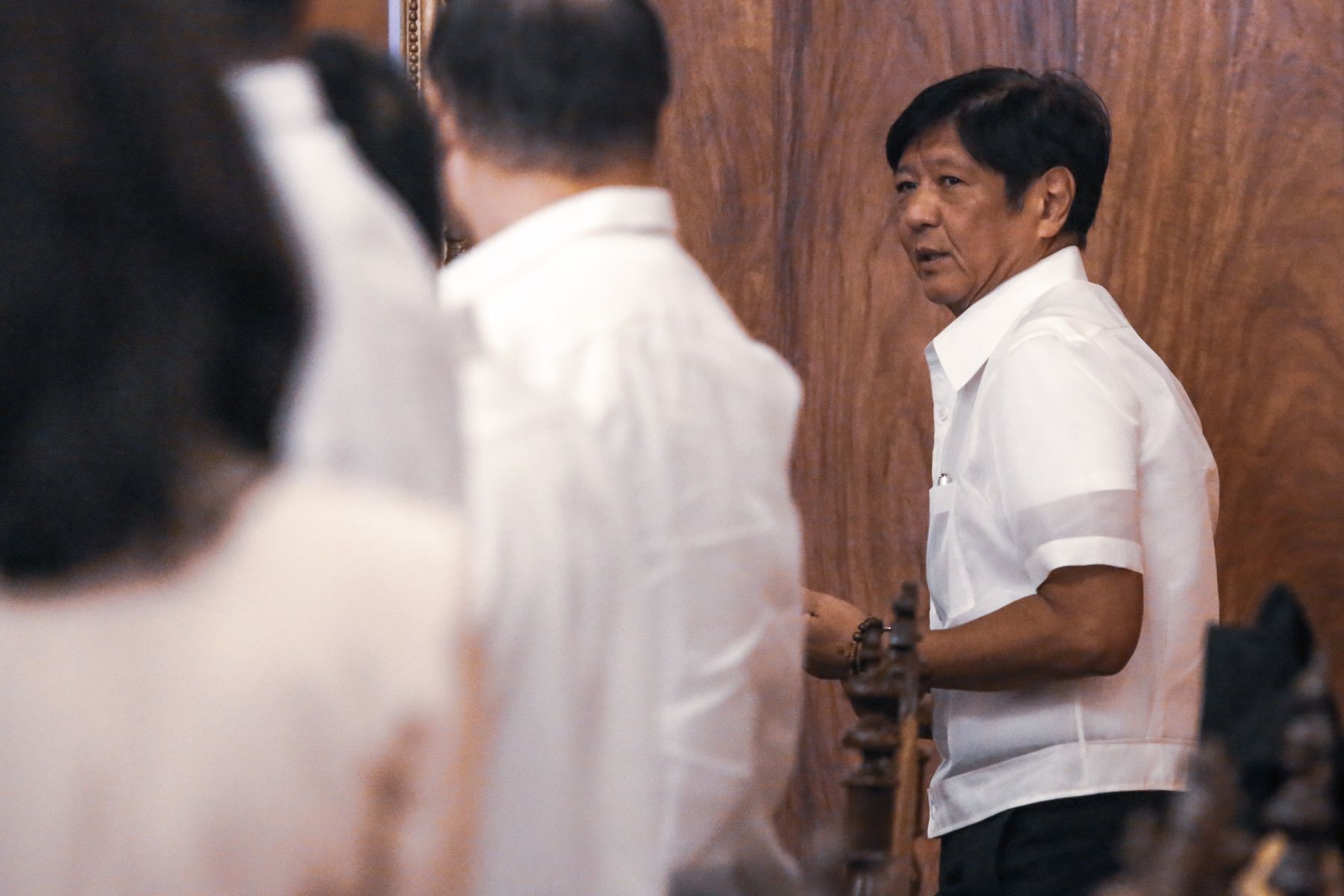President Marcos has told his Cabinet to maximize the use of this year's national budget, considering that he vetoed P194-billion items in the General Appropriations Act (GAA) for 2025.

In his first full Cabinet meeting this year held at Malacañan Palace on Tuesday, Jan. 7, Marcos led the discussion on the implementation of the GAA, which he signed last Dec. 30, as well as the issues on the delays of key infrastructure projects.
Executive Secretary Lucas Bersamin said the President ordered his Cabinet to maximize the use of the approved budget and prioritize the unprogrammed projects once funds are available.
"Well, you remembered that the President vetoed some items, made line-item vetoes. Ang effect ng line-item veto is just to reduce the potential deficit. We cannot transfer what we vetoed to other items," Bersamin said during a Palace briefing on Tuesday.
"The important thing to remember is the President said, maximize on what you can do for those that were approved, the program. And then the unprogrammed, maybe we give prioritization there when the available funds will come," Bersamin added.
The Executive Secretary said while the meeting was "very long," they were only able to discuss two of the four scheduled agenda due to lack of time.
"Tthe meeting today was very long, it started at 10. We were not able to tackle all the scheduled items because of lack of time but we can assure you that whatever was discussed, we discussed with thoroughness as the President usually does. He has been very targeted in his approach to all these matters that were reported," Bersamin assured.
"Actually there were only two of the four items of the agenda that were tackled, and these referred to the implementation of the GAA and the delays in the implementation of infrastructure flagship programs which were reported on by Secretary (Jaime) Bautista," he added.
Education budget constitutional
The Palace official also reiterated that the GAA for 2025 complied with the Constitution, particularly the fund allocated to the education sector, which also included the allocation for the police and military academies.
Bersamin justified the wisdom behind the inclusion of the Philippine National Police Academy (PNPA) and Philippine Military Academy (PMA) to the education sector, saying "you have to look at this with a broader understanding."
"If before, the treatment was the budget of the education was only that allocated to DepEd (Department of Education). That was the wisdom at that time. But then, so many things have happened, the education responsibility has been shifted to other government agencies. So, is it fair for everyone to claim that you should not include it in the education sector because they belong to the PNP, to AFP," Bersamin said in mix Filipino and English.
"Now, this is more a matter of looking at the situation. DepEd is not the only agency in the education sector, but it has the biggest portion of the education pie---the budget for the education sector. Of course, you will also consider TESDA (Technical Education and Skills Development Authority). Di ba TESDA education 'yan, and then you have the SUCs (State Universities and Colleges) o CHED (Commission on Higher Education), higher education 'yan. Now, if you add at this one, including also PMA, PNPA, and other offices with primary responsibility for education in their particular areas that could adopt to a bigger budget or a bigger slice of the budget for the education sector," Bersamin explained.
He reiterated that the veto line the President made under the Department of Public Works and Highways (DPWH), which has the second highest share in the national budget with P1.01 trillion, remains compliant to the Constitution as it resulted in the education sector gaining the lion's share of the government allocation.
"So the veto na ginawa ni Presidente sa DPWH, mas malaki yung education, na-comply yung Constitution doon (So the veto the President made in DPWH, the education sector has the biggest share, it was compliant to the Constitution)," he said.